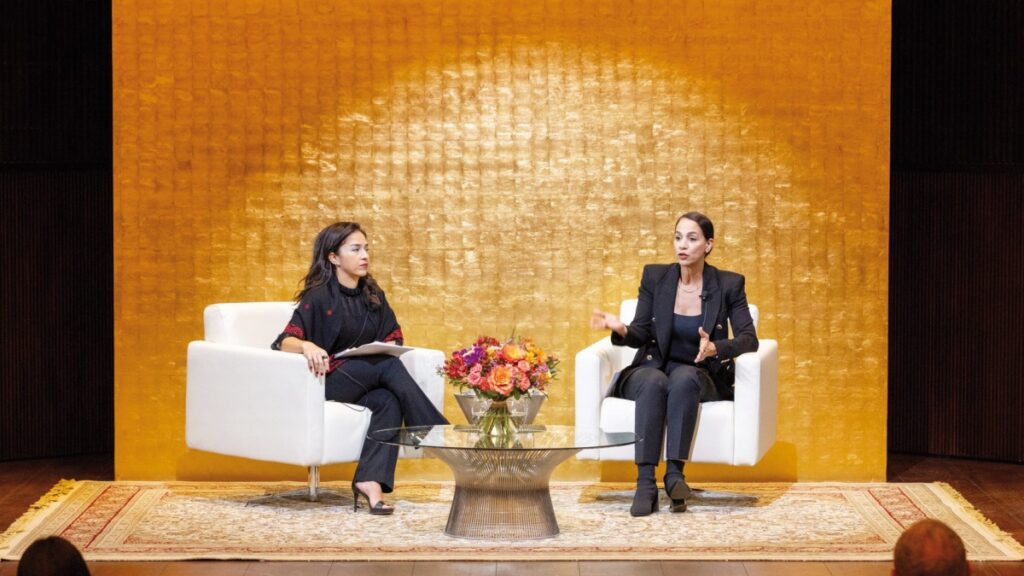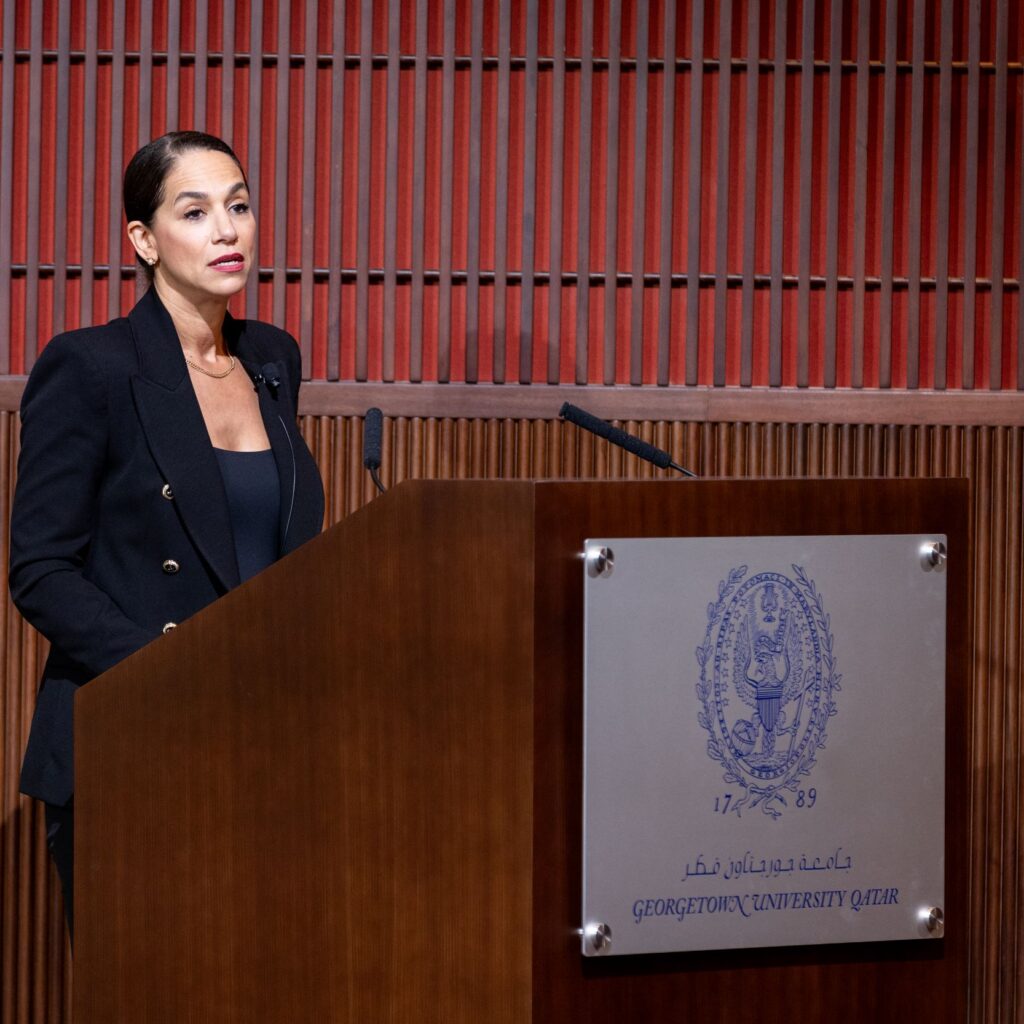Attorney Noura Erakat Discusses How Law Can Be a Tool to Achieve Accountability

During a public talk at Georgetown University in Qatar (GU-Q), Palestinian-American human rights attorney Noura Erakat presented a critical analysis of international law’s potential and limitations as a tool for change, focusing on the International Court of Justice (ICJ)’s interim decision in the case against Israel.
Erekat is an Associate Professor at Rutgers University, co-founding editor of Jadaliyyah with Dr. Bassam Haddad, and the author of Justice For Some: Law and the Question of Palestine, scholarly work and advocacy that has made her a critical voice to Palestinians and the struggle for liberation.
Dr. Noha Aboueldahab, Assistant Professor of International Law, moderated the discussion, which continued GU-Q’s efforts to provide a platform for scholars from all disciplines to offer insights on key issues. According to Dean Safwan Masri, the event aimed to help students and faculty understand the war in Palestine. “At GU-Q, we see it as vital to continue inviting speakers such as Noura Erakat, a renowned academic and human rights attorney, well-versed in the intricacies of international law, who can explain them in the context of the ongoing Gaza war. There is an urgent need for a legally sound and morally clear representation of this ongoing human tragedy. And it is related to an equally urgent need to ensure accountability for the war crimes committed in the conflict.”

In her talk, Professor Erakat acknowledged disappointment that the ICJ decision did not impose a ceasefire, but said there has been too little emphasis on the impact that it did have, arguing, “The ICJ provided a tool to agitate for a ceasefire.” The Court rejected every single one of Israel’s arguments, including that this was a legitimate war of self-defense. This has prompted individual countries to impose weapons sanctions, sever diplomatic ties, and initiate criminal cases under universal jurisdiction.
In Prof. Erakat’s perspective as a critical legal scholar, the ICJ’s conclusions also rejected Israel’s long-standing “exception legal framework,” based on sui generis (Latin for unlike anything else), which has been used to justify new laws that not only shrink who can be counted as a civilian but perpetuate the use of lethal military force.
“There’s this idea that the law is not doing its work,” said Erakat, who went on to show that the law doesn’t take action, it is merely a tool, the effectiveness of which is determined by the balance of economic, military, and social power, historical circumstances, leadership, and who brings the matter forward.
“We are witnessing an unprecedented mass mobilization across the globe, millions and millions of people,” explained Erakat on a hopeful note. “I’m convinced [they] were the reason that South Africa felt empowered to bring its case, not the other way around.”
Her exchange with Dr. Aboueldahab focused on the meaning of accountability for Palestinians, emphasizing universalized, collective responsibility and ethical solidarity. She also highlighted the overriding need for recognition in order to guarantee the right to life and dignity for Palestinians. “I think it’s far more important for us to be acknowledged. And to be recognized, and to have the world act on our behalf,” she concluded.
During her visit to the campus, Prof. Erakat interacted with the Georgetown community, including faculty and students, through classroom visits and talks. She concluded her week of interaction with a workshop for students titled Media, Knowledge Production, and the Middle East: The Case of Palestine, jointly presented with visiting scholar, Dr. Bassam Haddad.